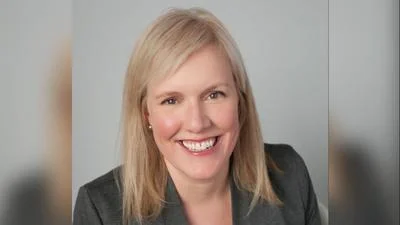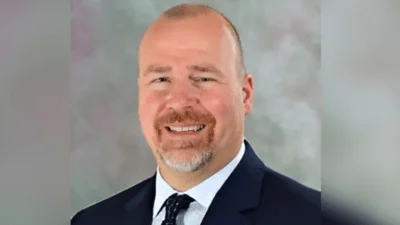The CTCL team at Millennium Park in Chicago | https://www.techandciviclife.org/
The CTCL team at Millennium Park in Chicago | https://www.techandciviclife.org/
The five largest cities in Wisconsin will share a $6.3 million grant from the Center for Tech and Civic Life (CTCL), a Chicago nonprofit agency that seeks to modernize U.S. elections through technology, data research and election administration.
The grant, announced last month in a CTCL press release, went to Green Bay, Kenosha, Madison, Milwaukee and Racine as part of the Wisconsin Safe Voting Plan – described in the release as a “vision for a safe, inclusive and secure voting process” during the COVID-19 pandemic. Milwaukee received $2,154,500; Madison got $1,271,788; Green Bay received $1,093,400; Kenosha obtained $862,779 and Racine, the driving force behind the grant, received $942,100.
The five cities stated in the release that the problems encountered during the April 7 primary election – a shortage of poll workers, personal protection equipment and a massive increase in absentee voting – showed the need for such a plan.

Madison Mayor Satya Rhodes-Conway
| https://www.cityofmadison.com/
“The Wisconsin spring election – in which voters were subjected to exposure to a dangerous virus, and municipalities scrambled to conduct safe elections – presented a cautionary tale of precisely how not to run an election during an outbreak of a lethal disease,” the release stated.
Madison's Democratic Mayor Satya Rhodes-Conway, a first-term progressive affiliated with the Green Party and the Progressive Dane party, said the April primary was extremely expensive and left the cities in need of financial assistance.
“Through an extraordinary effort, Madison was able to pull off a safe election in April, but we spent hundreds of thousands of dollars we hadn’t budgeted doing so,” Rhodes-Conway said in the release. “As we have seen in Wisconsin and across the nation, COVID-19 is not gone; in fact it’s getting worse in some places. If we are going to meet our obligations as elected leaders to ensure the safe administration of elections during this pandemic, we have to think differently and bring in help where we can. These valuable resources will go a long way to running successful elections this year.“
Milwaukee Mayor Tom Barrett, a Democrat in his fourth term after serving five terms in the U.S. House of Representatives, said it was a lesson hard-earned.
“We have seen what can happen to elections in the midst of a dangerous pandemic – long lines, limited locations, threatened exposure to a deadly disease and voters concerned about going to the polls due to serious health fears,” Barrett said in the press release. “These resources will help us address these problems, and I thank the Center for Tech and Civic Life for making these important and wise investments.”
Milwaukee Election Commission Executive Director Claire Woodall-Vogg said the announcement of the grant came a day prior to her appointment as executive director, so she was not involved in the planning process.
“My understanding is that the five mayors had been meeting regularly since COVID, and during their discussions they identified a shortage of election resources,” Woodall-Vogg told The Sconi. “Racine spearheaded our grant application as a group, sending us a comprehensive list of questions around safety, resources we need, and programmatic plans. I completed the City of Milwaukee’s portion of the grant application.”
“Our relationship with CTLC works like any other grantor/grantee relationship,” she continued. “We have a grant agreement which was approved by our Common Council at the end of July. Our expenditures must remain in line with our grant proposal. CTCL has been instrumental in providing technical assistance and connecting my office to national nonprofit resources such as the Center for Civic Design and the Vote at Home Institute.”
Green Bay Mayor Eric Genrich, a first-term Democrat, hailed the grant money, telling a local news station that it would assist the city and ease the burden on local taxpayers.
His chief of staff, Celestine Jeffreys, told The Sconi the grant was obtained after a “very, very short turnaround.” Jeffreys said obtaining a high-speed vote tabulator will be one major improvement thanks to the CTCL funds. The DS450 tabulator can securely count several hundred ballots in an instant.
Electronic poll books will also speed the process, with a large turnout expected because Wisconsin routinely tops 60%, and at times 70% voter participation in presidential election years.
“The nice thing about poll books is, you can upload that information very rapidly,” Jeffreys said.
It also can detect voting errors, such as people who forgot they voted absentee turning up at the polls. They can be sent away without casting a second, illegal ballot.
Jeffreys said money will be spent to provide masks, face shields, gloves, hand sanitizer and single-use pens for both election workers and voters. Finding people to put in the 14-hour days as poll workers and election judges is always a challenge, she says, and that will be even more so this year.
“Yes, because of the pandemic,” Jeffreys said. “It’s always difficult.”
Thanks to the grant money, Milwaukee will raise election workers' pay from $140 per day to $350. The people directing election staff will also receive increases.
“It shows the care and respect we should have for poll workers, because it’s not an easy job,” Jeffreys said.
City employees also will see an increase, since they will be expected to accomplish a great deal under deadline pressure this fall. They have to handle mail-in voting, early voting and other issues. Three or four “voter navigators” will be hired to answer questions from residents and to witness ballots. At least one will speak Spanish, Jeffreys said.
The city also will use grant money for voter outreach and advertising. It sent a notice to every mailing address in the city offering voter information, including poll locations.
“We want to make sure nobody is left out in the cold,” Jeffreys said. “We want to ensure nobody is unable to vote.”
The deadline to register to vote online is Wednesday, Oct. 14. Mail-in registrations must be postmarked by the same deadline.
Registration for in-person voting ends on Friday, Oct. 30, although you can register and vote on Election Day. Requests for a ballot by mail must be received Thursday, Oct. 29, 2020.
Early voting runs from Tuesday, Oct. 20, to Sunday, Nov. 1, although that can vary in locations.
Kenosha information coordinator Michelle Nelson said that city's share of the grant money will be especially helpful with absentee voting, which was up dramatically in April and is anticipated to be high this fall, according to the Kenosha News.
There are approximately 48,000 registered voters in Kenosha, Nelson said, and the city is prepared for at least 20,000 absentee ballots, with the ability to order more.
Wisconsin voters do not need to give a reason for voting absentee. Ballots can be requested or voters can cast an early ballot in the Municipal Building at 625 52nd St.
Finding poll workers in Kenosha will be a challenge, Nelson said, as will providing the needed space for social distancing also working with the reduced number of locations that can be used. The city has gone from 22 voting locations to 10.
Nelson said that Racine deserves credit for identifying the CTCL as a source for grant money.
“They identified it,” she said. “They were required to collaborate with the five largest municipalities.”
Designated areas of interest
The grant money is to be used in targeted areas of operation, the press release stated. The CTCL designated the largest share, $2,572,839, to support early in-person and vote-by-mail efforts. This includes increasing the number of voting sites and providing curbside voting, secure drop boxes for absentee ballots and funding for staffing or technological improvements.
The CTCL dedicated $1,810,028 to recruit and train poll workers, including providing safety pay and training. As part of this program, hazard pay will be offered to attract more workers, and money will be provided to allow for increased cleaning and sanitation efforts.
An additional $1,065,000 is for voter education and outreach to remind people to verify and update their voting addresses and other required voter information.
The grant devotes $876,700 for personal protective equipment for both poll workers and voters. It also will support and expand drive-through voting efforts, including new signage, tents, traffic control and safety measures.
Voting in Wisconsin is being closely watched, with the Badger State seen as one of the key battleground states in the presidential election, according to media outlets. President Donald Trump earned Wisconsin's 10 electoral votes by less than 1 percent, or roughly 22,000 votes in 2016.
It was the first time a Republican candidate had carried the state since President Ronald Reagan in his landslide 1984 win. After that, the Democratic candidate won Wisconsin seven times in a row.
The CTCL, founded in 2012, describes itself as “a team of civic technologists, trainers, researchers, election administration and data experts working to foster a more informed and engaged democracy, and helping to modernize U.S. elections.” Its goals are to connect election officials with tools and training to best serve their communities, while providing information to develop lifelong civic habits among the population.
The group was co-founded by Tiana Epps-Johnson, a civic technologist who also serves as CTCL's executive director and president; Whitney May, a former election official who is the director of CTCL’s government services department; and Donny Bridges, director of CTCL's civic data department. Before starting their enterprise, Epps-Johnson, May and Bridges met with government officials in Wisconsin, California, New Jersey and Tennessee in what they describe as an informational “listening tour.”
Since its launch, CTCL has collected and distributed what it terms “civic data” — information on elections and candidates. That includes details on nearly all local election offices, profiles of candidates, information on the offices they seek and contacts for elected officials. That “civic data” has been made available to 250 million voters, CTCL claims.
All of that takes money. CTCL has been supported by Facebook and Google, which have obtained election information from the group. It also has received funding and other forms of assistance from the Skoll Foundation, which awarded CTCL a $1.5 million grant in April.
Other financial help includes $1.3 million from the John S. and James L. Knight Foundation; at least $690,000 from the Democracy Fund; and $10,000 from the Rockefeller Brothers Fund.
The $6.3 million grant for the five Wisconsin cities is believed to be the largest expenditure in the CTCL’s brief history. It also reveals a giant leap in funding, as its total revenue for the years 2016-18 hovered around $1 million annually, according to ProPublica.
A liberal agenda?
Empower Wisconsin, which promotes itself as the state’s “premiere conservative information hub,” says that while CTCL describes itself as nonpartisan, it leans hard to the left.
“The organization advocates for left-of-center voting policies and election administration, according to Influencewatch.org,” Empower Wisconsin recently wrote on its website. “CTCL has a wide reach into local elections offices across the nation.”
The report said that the Skoll Foundation and the Democracy Fund are among the “biggest sugar daddies in liberal politics.”
The Skoll Foundation was funded by billionaire philanthropist Jeffrey Skoll. He’s founder of Participant, a firm that has produced films such as “An Inconvenient Truth,” the 2006 documentary on climate change with former Democratic Vice President Al Gore.
The Democracy Fund “contributes to center-left and left-wing media organizations, groups seeking to infringe on campaign speech rights, left-of-center voter registration organizations, and nominally non-aligned public policy organizations,” Influence Watch reports.



 Alerts Sign-up
Alerts Sign-up